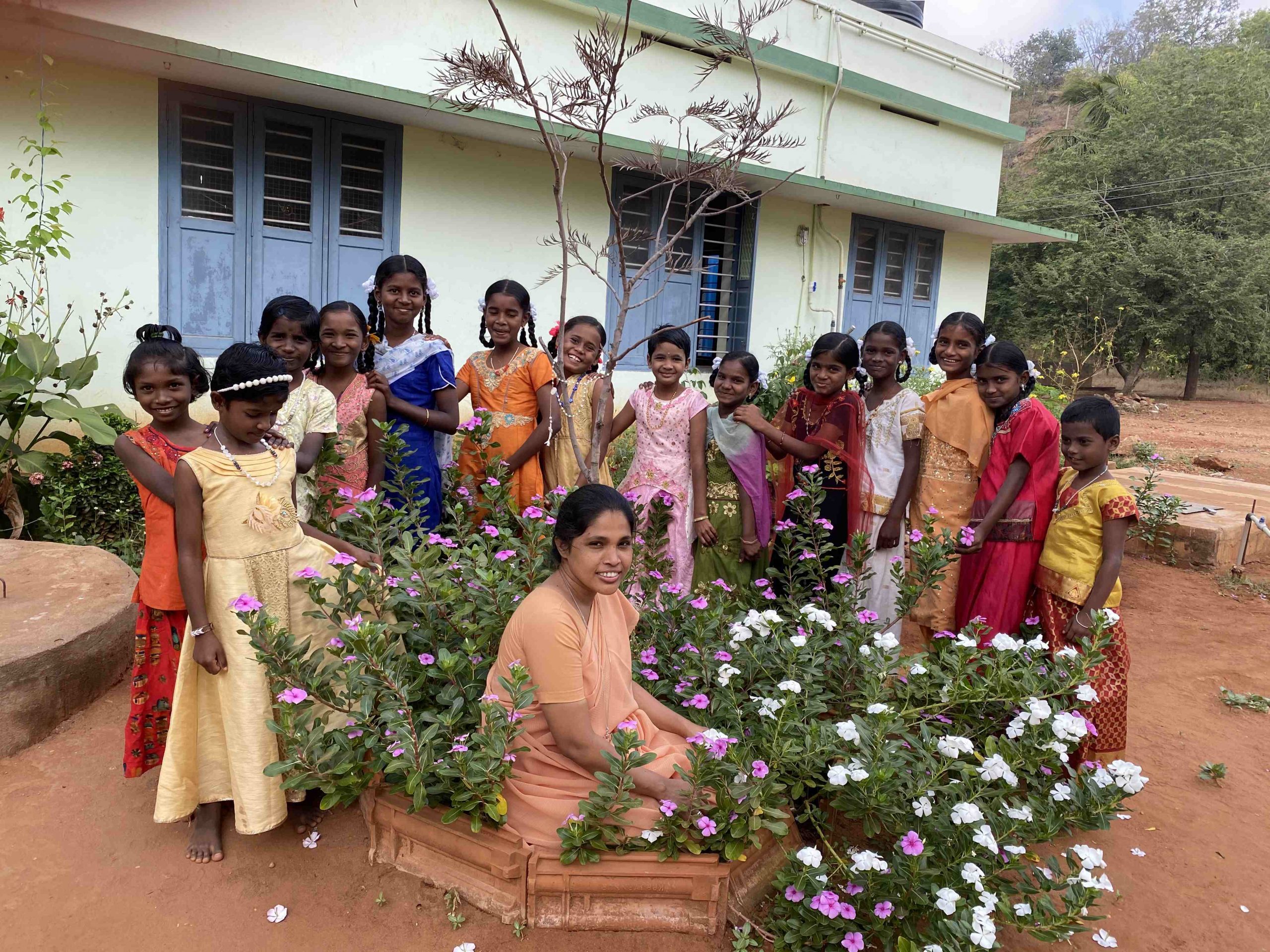
The Works of Mercy of the Franciscan Sisters of St. Thomas, India
In the Footsteps of St. Thomas: Education, Healing, Consolation and Mercy – The Inestimable Work of the Franciscan Sisters in the Heart of the Community in India
Counselling the doubtful and teaching the ignorant

In the educational apostolate, the Franciscan Sisters of St Thomas actively participate in the mission of Christ by offering an integral formation for the complete development of each person. The aim is to emphasise the uniqueness of each individual through physical, intellectual, emotional, moral, spiritual integration and social and cultural growth. Each student is stimulated to fraternal collaboration for the realisation of a society based on civic responsibility and love. The congregation offers a holistic education to transmit moral, social and spiritual values in the lives of the students.
Visiting the sick
The Congregation undertakes the healing ministry of Christ by providing health care and outreach, direct care services to the poor and needy in rural areas.
Through innovative clinical practice, active involvement and shared commitment to meeting the changing needs of the community, the sisters are a hallmark of Catholic health care excellence.
Consoling the afflicted
The Franciscan Sisters of St Thomas promote the development and growth of the individual with the aim of helping them to reach their fullness according to God’s will. This accompaniment is realised through targeted education and the proposal of social development concepts, encouraging people to create small mutual aid organisations to focus on a unified human potential.
Special attention is paid to children. A sister of the congregation says: “It is important that children identify their guide in Jesus. It is they who bring hope to our society and the future of our faith also depends on them. In their innocence they teach us what life is: a life to enjoy, to appreciate and to live”.
Feeding the hungry and housing pilgrims. The orphanage “House of Mercy” is told

The St Thomas’ ‘House of Mercy’ was founded by Bishop Thomas Fernando, former Bishop of Tiruchirapalli, to take in the poorest children, orphans and semi-orphans and provide them with food, shelter and education in the nearby government school. The work was entrusted to the Franciscan Sisters of St. Thomas on 10.07.1987. The facility is able to provide safe and stable shelter, education and support during the childhood of the little guests. The orphaned children are ‘invisible’, vulnerable, poor and therefore disadvantaged. The girls present come from families with no source of income, so it is the sisters who take care of them not only in their studies but also in health, housing, etc.
The sisters work for the evangelisation of the rural masses who have not heard the proclamation of the Gospel even once in their lives.
The staff consists of four nuns who animate and accompany the young people at all stages of their growth, a teacher, two cooks and a guardian.
The facility is currently inhabited by 85 girls of whom 42 are orphans, 20 semi-orphan girls and 23 destitute girls. The girls in the ‘House of Mercy’ are not only victims of their parents’ rejection, but also victims of society’s vices.
The objectives of the ‘House of Mercy’
- To offer a happy childhood and a good quality of life to the children in the orphanage
- To create a positive and interactive learning environment, inside and outside the orphanage, to stimulate and encourage the children’s pride in their work and independent study
- Provide practical support to orphaned children and help them position themselves confidently within the learning process and create a tangible dynamic atmosphere that embraces learning and development in a multidimensional way
- Creating a healthy outdoor space for children. Especially older children who need healthy role models and support in their preparations for an independent life – intellectually, practically and emotionally
- Create a detailed file on each child, tracking their intellectual abilities and developmental progress through constant monitoring of cognitive, memory, creative, attention and receptivity, listening and responsiveness skills
- To “awaken” orphaned children by cultivating self-respect, self-expression and the capacity for autonomous learning

The apostolate of the sisters is not only to manifest the message of Christ in word and deed and to communicate Christ to the world, but also to penetrate the temporal order with the spirit of the Gospel, adapting it not only to the demands of today’s spiritual and moral circumstances, but also to social, cultural and economic conditions.
“Joy is love, joy is prayer, joy is strength. God loves a cheerful giver; if you give joyfully, you give more and more. A joyful heart is the result of a heart burning with love. Works of love are always works of joy. We do not need to seek happiness: if we possess love for others, it will be given to us. It is the gift of God.” (Mother Teresa of Calcutta)
In the Gospel of Luke, Jesus says: “give and it will be given to you”. “So with the Works of Mercy we do God’s will, we give others something of our own and the Lord promises us that He will also give us what we may need. If we truly are children of Mary, we will understand the Lord’s teaching, our hearts will expand and we will have bowels of mercy. We will then grieve over the sufferings, the miseries, the mistakes, the loneliness, the anguish, the sorrows of men, our brothers. And we shall feel the urgency to help them in their needs and to speak to them of God, so that they may learn to treat Him as their children and come to know Mary’s maternal gentleness.

Our life must accompany that of others so that no one is or feels alone. Our charity must also be affection, human warmth,” says a sister involved in the “House of Mercy”.
Sister Freeda Mary Varghees
Franciscan Sisters of St Thomas
